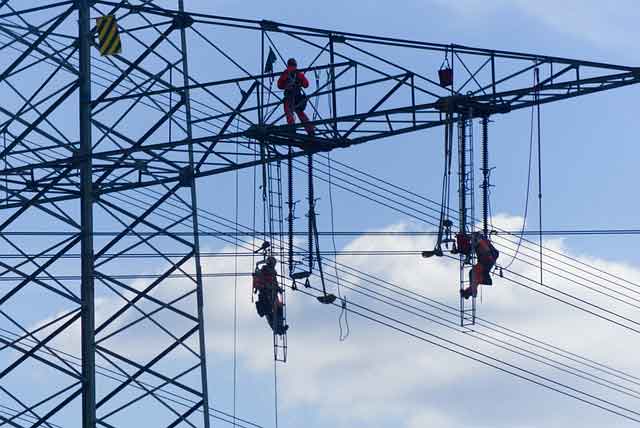Baghdad Power-Water Still Below Prewar Levels
By International Herald Tribune
NFPA 70e Training
Our customized live online or in‑person group training can be delivered to your staff at your location.

- Live Online
- 6 hours Instructor-led
- Group Training Available
The assessment appeared to run counter to earlier assurances by the Pentagon that the goals for improving these services had been or were close to being met in many parts of the country. It also reflects the damage done by looters and saboteurs since the end of the major combat earlier this year.
As the occupation officials in Baghdad warned of tough times ahead, General Tommy Franks, who led allied forces through the war, stepped down Monday as head of the U.S. Central Command. He was relieved by his deputy, General John Abizaid.
In a video conference Monday with reporters at the Pentagon, the two occupation officials in Baghdad, Major General Carl Strock of the army and Andrew Bearpark, the director of regional services, said that electricity in Baghdad was being redirected to other parts of the country even though the lack of power in the capital had been cited as one reason for the continuing violence. Drinking water in Baghdad could be restored to prewar levels by the end of July, the officials said, but they conceded that efforts to treat raw sewage now pouring into the Tigris River were still months away.
Combat damage was comparatively light, said Strock, the deputy director of operations for the occupation force. The real problem here is decades of neglect to this infrastructure, lack of investment in operations and maintenance, and also the looting and sabotage.
Strock and Bearpark offered several examples of progress in the complex postwar rebuilding effort. But their assessment also arguably painted a more sobering picture than what Defense Secretary Donald Rumsfeld and other top Pentagon officials have characterized in recent weeks.
A few areas have challenges, to be sure, Rumsfeld said on May 15. But most areas are progressing, and a growing number actually have conditions that are today estimated to be better than prior to the recent war.
In another sign of the Pentagon's growing recognition of the daunting effort ahead in Iraq, the army said Monday that it had reversed its decision to close its Peacekeeping Institute in Carlisle, Pennsylvania, and was now planning to expand the institute to focus on stability operations like the Iraq mission.
The occupation officials said restoring electricity was the top priority because so many other reconstruction tasks depended on reliable power.
Strock said his teams, along with 39,000 Iraqi electrical workers, were trying to rebuild an antiquated electrical system to increase Baghdad's power-generating ability to its prewar level of about 4,000 megawatts by the end of July, from the current 3,200 megawatts.











